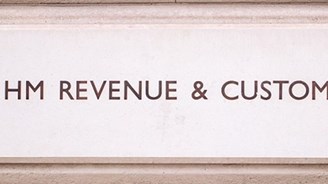Making Tax Digital for Businesses – What do you advise now?

The story of Making Tax Digital for Businesses (MTDfB) already involves as many twists and turns as the average detective novel. You could be forgiven for wondering where we are now - what to advise clients, and when to open the dialogue.
Different tax, different timetable
In July, the government announced not just a new timetable, but a new focus: VAT. From April 2019, businesses operating over the VAT threshold (currently £85,000 pa) will need to keep digital records for VAT purposes, and use MTD functional compatible software to make VAT returns. For the moment, at least, MTD won't be mandatory for other taxes.
Then came publication of Finance Bill 2017, on 8 September, with the legislation that will enable HMRC to put detailed requirements for the system in place.
Small print
So far, the theory is there, if the actual practicalities are still only a gleam in the eye of the software developers.
There are requirements for the keeping and preservation of records in digital form. There is a tacit understanding that spreadsheets will be acceptable at least for data capture - with the proviso that businesses using them will have to make sure they meet MTDfB requirements, including the facility to provide HMRC with automatic digital updates.
As with electronic filing at present, there are provisions for exemptions; and there's detail for users of VAT schemes such as retail schemes and the flat rate scheme.
Plain sailing?
To listen to HMRC on the subject, you'd think it was all going to be (moderately) plain sailing. A year for software developers to do some developing, a year for some robust trialling - what more could anyone want?
In reality, as many practitioners know only too well, dealing with clients can be more complicated than that.
You have taxpayers taking out 18-month old records, staring at them for a while as they try to figure out what they were doing back then, and then tentatively use them to fill in a lengthy HMRC form.
Or they can go to their accountants, drop a large carrier bag of records on their desks, and get them to work it all out... a world of paper, ledgers: book-keeping in a literal sense.
The voice of a high street practitioner?
In fact, not. That was David Gauke, speaking in his capacity as Financial Secretary to the Treasury in 2016 - and recognising that the large carrier bag still plays a part in the psyche of many small business clients.
His speech also bears witness to the fact that it's the professional adviser to whom clients turn to make sense of the complicated.
MTDfB: making the transition
The transition to MTDfB will involve major change for most clients. The most digitally competent will need to be kept up to date with developments at HMRC. With some types of client, you may need to re-orientate the relationship, offering a new range of services, such as record keeping, to assist in MTDfB compliance.
The clients include:
- the VAT registered plumbing business whose filing cabinet is still the foot well of the Transit van
- the farming client whose record keeping is meticulous - but on paper - who has traditionally relied on you to submit the VAT return electronically
- the retired-but-self-employed client who doesn't want the hassle of digital.
Opening the dialogue
Although MTDfB is still being fine-tuned, it's still HMRC's stated direction of travel. Given the extent of change involved, it could be wise to start the dialogue with clients now, keeping them up to date and looking at options for the future. MTDfB involves major change, not just in terms of the relationship with HMRC, but quite possibly with you as adviser.
The last thing you want is for your clients, who do not currently keep their records in a digital format, to wait till just before April 2019 to move towards a digital system.
How can we help
With this in mind, we have produced a client letter which you can send to clients explaining current developments. It can help you start a discussion with clients now about how record keeping and reporting to HMRC will need to change, as well as the services you can offer going forward to help clients comply with the new regime. To order our client letter, please visit our website.



